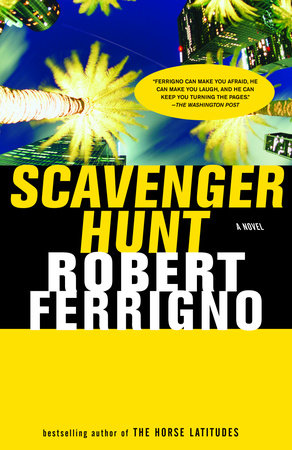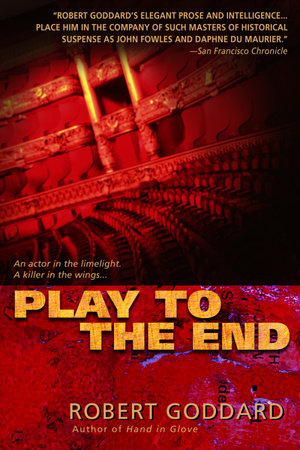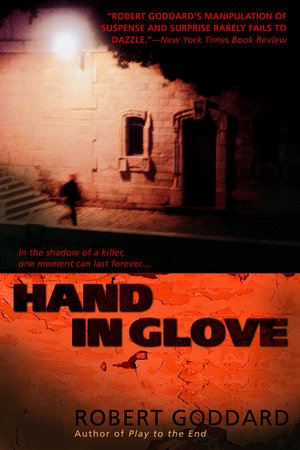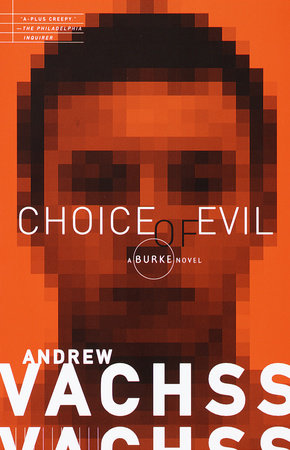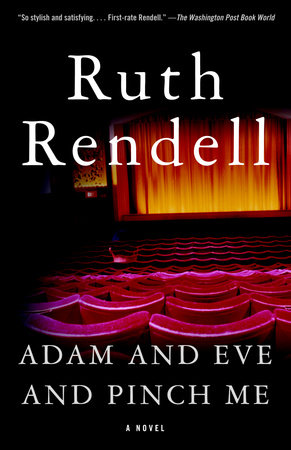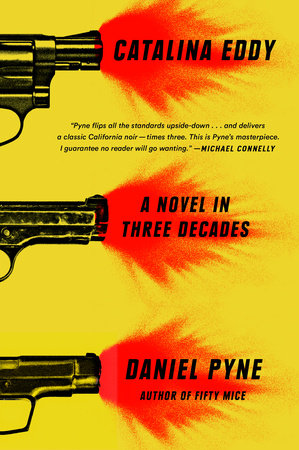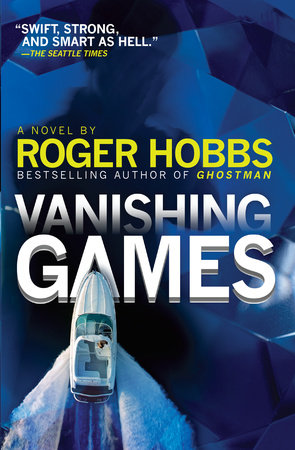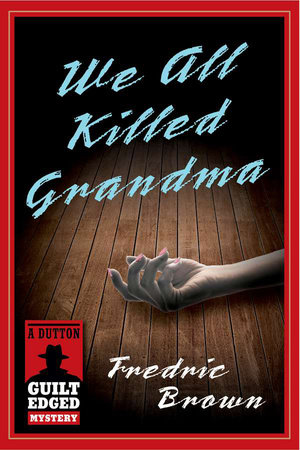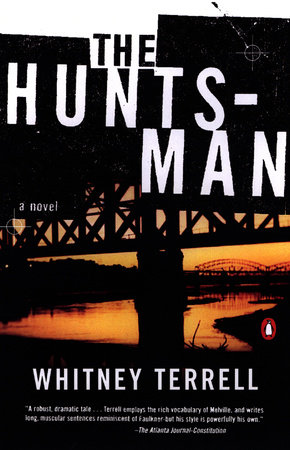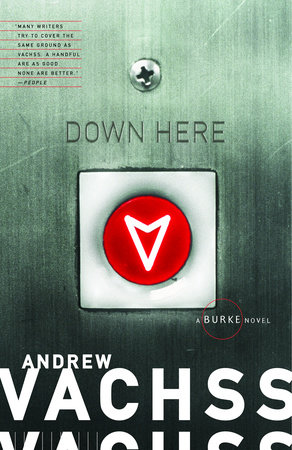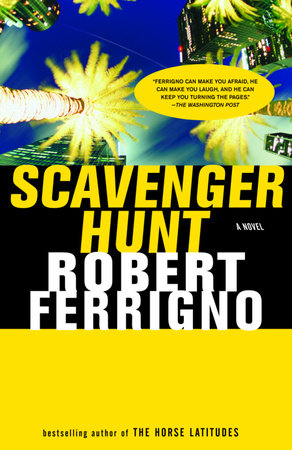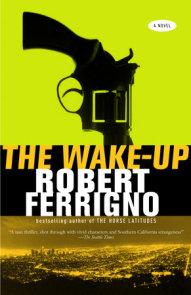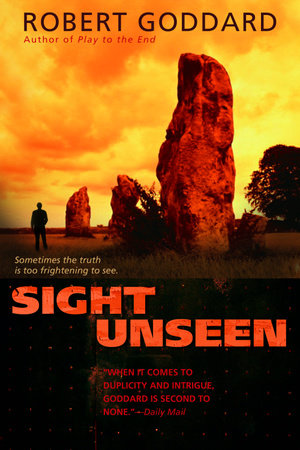Author Q&A
A Conversation With Robert Ferrigno
author of SCAVENGER HUNT
Q: First, a little background: you earned a degree in Philosophy. It would seem like a fairly radical shift to start writing noir thrillers.
A: Not that radical. I studied Philosophy out of a desire to make sense of the world and of myself. SCAVENGER HUNT deals with the same moral questions that interested me the most in school, i.e., what is our responsibility to our friends? Can doing good be doing harm? When is violence justified? Jimmy Gage, my protagonist is morally tainted, uncertain of the location of the higher ground, his street smarts and sense of humor all that stands between him and the abyss.
Q: You were a feature writer at the Orange County Register for seven years, working what you described as the "adventure-and-new-money beat." What inspiration did that provide for your novel writing?
A: Being a feature writer was the next best thing to being rich and crazy. I flew with the Blue Angels, drove race cars, went on paramilitary training with gun nuts, and interviewed everyone from strip-club hot-oil wrestlers to retired Joint Chief of Staff Curtis Lemay. I learned to absorb these experiences and personalities, the sounds and sensations, the speech patterns and dress, the way they held their cup of coffee, all the bits and pieces that reveal character. I once accompanied an auto repo man on a 3 a.m. run in a bad part of town — one minute he was casually breaking into locked garage for a hookup, the next we were racing away while he sang me his latest country and western composition. For all I know, he could be the toast of Nashville by now, or long dead, shot by an angry Porsche owner who missed a couple payments and still wanted his ride. Good guys and bad guys, I used them all.
Q: Speaking of bad guys, Sugar Brimley, in SCAVENGER HUNT, is one of your most unique villains.
A: Yeah, Sugar really got under my skin. The idea of a character who apologizes to people as he kills them, and genuinely means it, was fascinating to me. The first thing I wrote for the book was a prologue, a vaguely threatening scene in which a big man named Sugar danced with a woman named April in her office, swayed softly against her, overcoming her reticence. April is a pillowy matron, a little embarrassed at Sugar’s advances. The scene ends with Sugar deftly tossing her out the open window to the pavement five stories below. Rather than being a sadist, or a sociopath, I saw Sugar as a likable, easy-going behemoth who did terrible things when he had to, but still felt guilt. I couldn’t wait for he and Jimmy to meet up.
Q: The two female characters in SCAVENGER HUNT — Jane Holt and Helen Katz —are not just strong characters, but are crucial elements of the book. Jane is the lover of your protagonist, Jimmy Gage, while Helen Katz is a police detective who confronts Jimmy on every occasion. How do these women, and women in general, fit into your conception of a crime thriller?
A: Both Jane Holt and Helen Katz are police detectives, and although they have very differing personalities, they both represent order and integrity, and as such are a perfect counterpoint to Jimmy, a moral freelancer more interested in doing what is right, rather than what is legal. My books always feature an unfolding love interest — this amps up the tension, and it’s also a great way to make my male protagonist, no matter how capable in terms of crime and punishment, feel that he’s in over his head.
Q: What makes Southern California such rich territory for your imagination?
A: Southern California is the epicenter of a certain sleek, cutting-edge cool, a place of vast ambition and a willingness to do whatever it takes to achieve it. I also like the linguistic mix of Southern California, the amalgam of surf lingo with Black street slang, Hollywood hype and homeboy Spanish, all clashing and clanging together. My kind of town. Just as the most dangerous creatures in the ocean are the brightest and most gaudy, L.A. provides a panoply of equally beautiful, amoral types — valet parkers offering the latest designer drug or their latest screenplay to their Range Rover clientele, cocktail waitresses debating whether starring in a soft-core porn movie or dating a cable-TV development executive would be more useful, “speaking, like career wise.” Southern California is a state of mind, not a geographical location, the land of the great hustle, a place where anything is possible, reinvention is constant, and no one believes anyone.
Q: No one believes anyone. Is that why you like poker? You played professionally, didn’t you?
A: Yeah, I started playing serious poker when I was twelve, and never needed another after-school job. Poker financed a trip to Europe when I was nineteen, where I quickly lost all my money at the roulette tables at Monte Carlo and spent the next four months sleeping on the streets of the French Riviera. After graduate school I quickly decided that I had no aptitude for teaching community college English, and decided to go back to my first love, gambling. I spent the next five years playing poker full time, sometimes in Las Vegas, mostly in small, illegal backroom games in Seattle. My normal schedule was to play all night, catch the 7 am swim at the Y, sleep all day and start the process again. I lived in a forty-dollar-a-month apartment — protect your bankroll is the first rule of the gambler — but every year I would decorate my Christmas tree with hundred-dollar bills, and the sight of all those Ben Franklins nestled among the twinkling lights never failed to cheer me. My best Christmas there was over ten-thousand dollars decking the tree. Most of the time I won, but there were times I went directly from the game to the 5 a.m. call at the day labor office. I was always hired — I was the only one who wasn’t drunk. I’m not a full-timer anymore, but I still go to Vegas regularly. I always stay downtown, where the local hardballs play. Its a tough game and there isn’t a drop of compassion, but I love it.
Q: Your previous novels have all been optioned by film studios, yet the portrait of Hollywood in SCAVENGER HUNT is one of rampant egomania, hypocrisy and corruption. Is that why the studios passed on this book?
A: Perhaps I was being naïve, but I just wanted to write a funny, suspense novel, using Hollywood as a prism to highlight the soaring ambition of the California dream, and the danger and desperation that is part of that dream. My entertainment agent was more clear eyed. She thought the sardonic tone of the book was going to cause as much trouble as the subject matter itself. She was pleasantly surprised after sending out the galleys, calling me up to tell me she had gotten a strong and immediate response to the pages. Three major producers had contacted the studios they had deals with, and asked them to option the novel. Over the course of the next two weeks, all of the studios declined. One of the studio reps informed my agent that her boss had told her, “why should I spend money making a movie that makes fun of people like me?” The happy ending, and in Hollywood there’s usually a happy ending, is that SCAVENGER HUNT is currently being considered as a made-for-TV movie or series. Television execs love making fun of studio heads.
